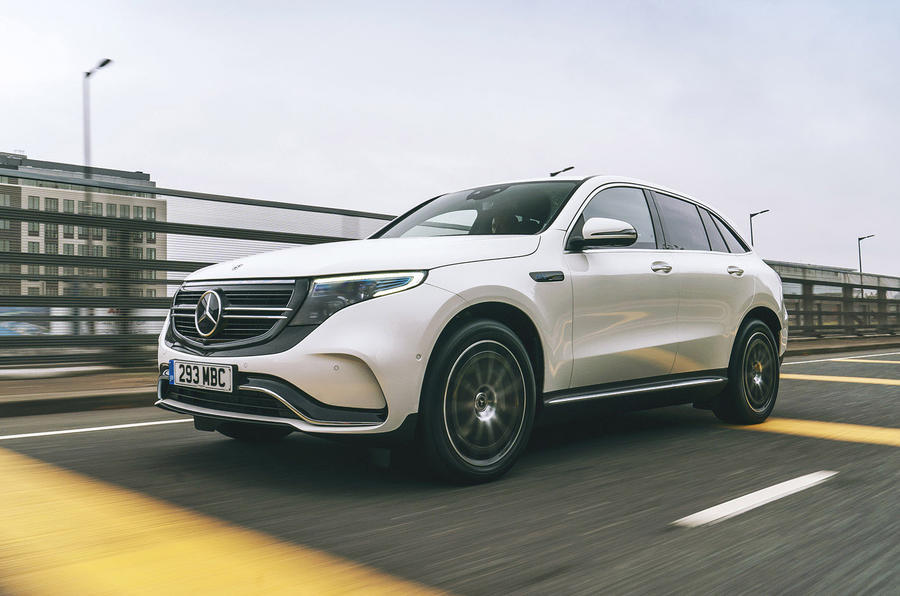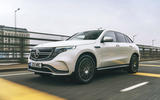Mercedes-Benz's parent company Daimler has denied reports that a shortage of batteries has forced it to half its 2020 electric car production targets.
Unconfirmed reports in the German media had suggested battery supplier LG Chem had been unable to meet Mercedes' demand, forcing the company to slash the number of EQC electric SUVs it was expecting to build this year to 30,000.
But in a statement issued to Autocar, the company said "production planning for 2020 has not been withdrawn," and that it continues to plan "with around 50,000 EQC units in production."
However, it admitted that "currently we cannot satisfy the pleasingly high demand for the EQC," and was "consciously focused first on selected customers" who had registered interest through the company's website and dealer network.
Daimler works council chief Michael Brecht told Manager Magazin that Tesla’s purchase of battery specialists Grohmann Engineering, originally hired by Mercedes-Benz to shore up its capacity to produce batteries, has had a knock-on effect on the company’s ability to build EVs in line with original targets.
The outlet suggested Mercedes originally expected to sell 25,000 EQC models globally in 2019, but had only managed around 7000.
Mercedes-Benz had previously delayed North American sales to “support the growing customer demand for the EQC in Europe”, but new car registrations in its home nation suggested only 55 cars found buyers in November and December. Rival Audi managed to sell 192 Audi E-tron models in Germany over the same period.
The reports come as the entire car industry is gearing up for a change in fleet emissions rules next year that will see companies fined for exceeding CO2 targets. Because each car maker has an individual target based on the size and weight of the models in its fleet, Daimler must reach a fleet average of 103.1g/km target by 2021. Failure to do so could see it face a fine of €997 million (£834 million). In 2018, its fleet average was 130.4g/km.
READ MORE
Electric SUV megatest: Mercedes EQC vs luxury rivals
New Mercedes-Benz EQC: UK pricing set for EV












Join the debate
Add your comment
I thought there was a cap on production of the I-Pace
with Magna Steyr only able to make 20,000 pa..
Look at Jaguars sales figures
Look at Jaguars sales figures for the Ipace. The numbers aren't good but no worse than Mercedes or BMW. Jaguar is also blaming battery supply but is that the case or that they are struggling to get buyers?
Jag v Merc v Audi in Europe
Actually for Sept and Oct 2019 the I-Pace outsold the merc 5 - 1.
Yes the Audi sells more by about 30% but then by Audi v Jag comparrisions that's pretty successful.
So no the I-Pace isn't struggling comppared to the might of Audi and Merc.
p.s. the I-Pace also sells twice as many as the Model X and Model S
Naughty Tesla!
Mind you, Mercedes or others would have done exactly the same to Tesla given half the chance, doubtless why they have built they're own factory.